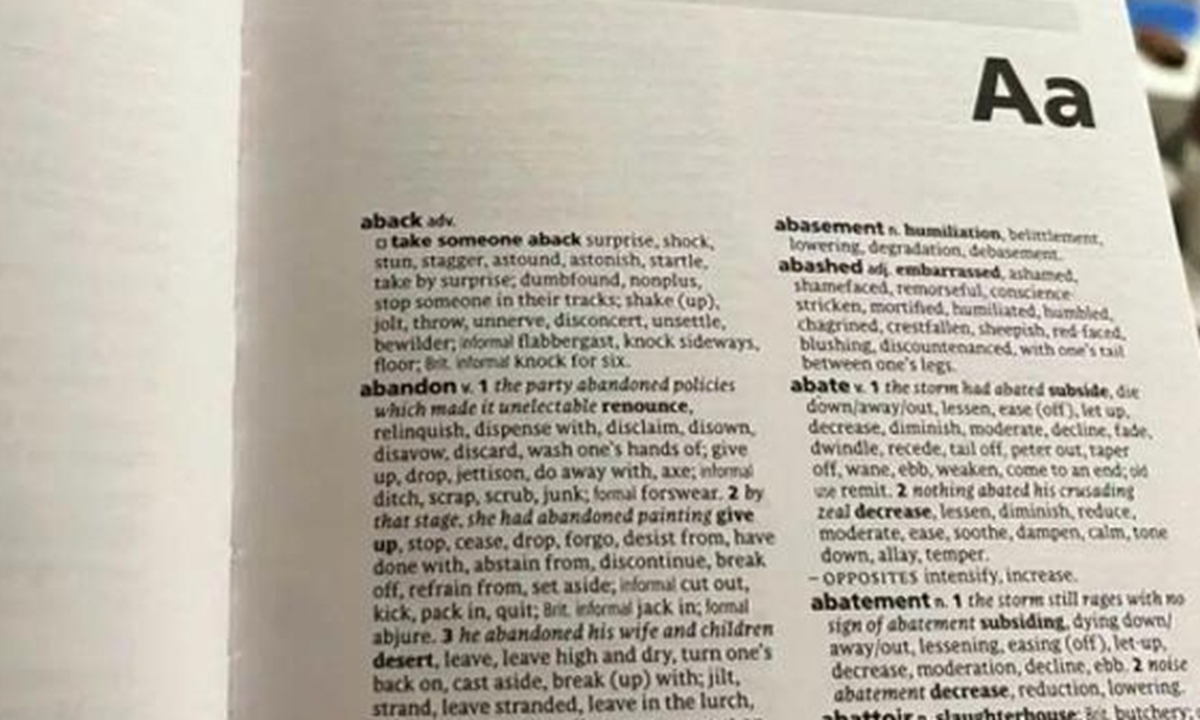
Recently, netizens discovered that in the Oxford Paperback Thesaurus, "abandon" has been pushed to the second place, with the first word being the relatively unfamiliar "aback." Photo: web
In the world of words, "abandon," which has long held the top spot in dictionary, is no longer in the first place. Recently, netizens discovered that in the Oxford Paperback Thesaurus, "abandon" has been pushed to the second place, with the first word being the relatively unfamiliar "aback."
The word "abandon" originated in the late 14th century, derived from the Latin "ad, "meaning "to be in" and combined with "bannum" to evolve into the French word "abandonner," and finally becoming "abandon" today. Its first position can be traced back to 1604. Since then, "abandon" has consistently held the top spot, carrying a sense of tradition. In vocabulary books for exams such as CET-4, CET-6, TOEFL, GRE, and postgraduate entrance exams, "abandon" is also listed as the first word.
Its top position has garnered a lot of attention and has even led to vocabulary books and dictionaries being seen as "prophetic books." The meaning of "abandon" as " give up" coincides with the feelings of many English learners: giving up after memorizing a few pages, getting motivated and starting again, only to give up once more, and repeating this cycle.
Readers sometimes joked that: "I understand now, nothing is difficult as long as you're willing to 'abandon.'" Compared to "abandon," "aback" has relatively infrequent uses. It is rarely used in daily life, and most exams do not require candidates to master this word, so there are no relevant frequency statistics available. However, now "aback" has gained more diverse meanings and a stronger sense of presence. Experts believe that as society progresses, the vocabulary people use is becoming increasingly rich, and updating dictionaries is almost inevitable.




